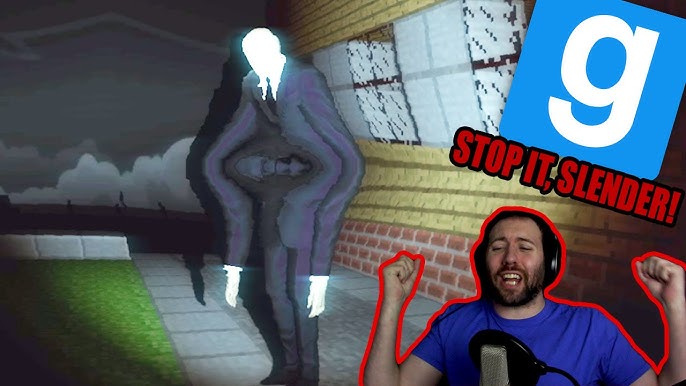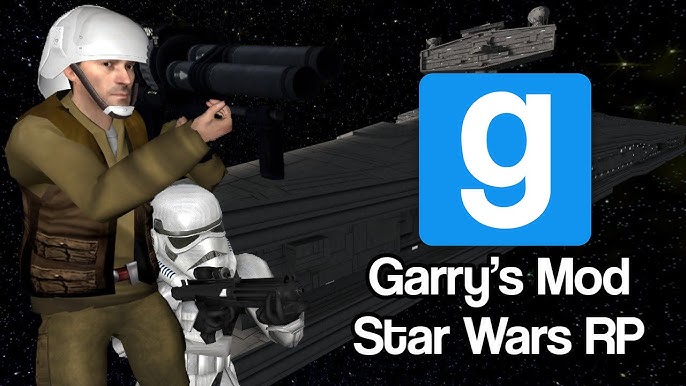A Requiem for the Golden Age: Remembering the Glory Days of Garry's Mod Addons Garry's Mod.

Garry's Mod. The name itself conjures images of chaotic sandbox experiments, physics-defying contraptions, and countless hours lost in the digital ether. But beyond the base game, lay a vibrant ecosystem of addons, a testament to the creativity and ingenuity of the community. As a long-time player and former server administrator, I witnessed the rise and fall of countless trends, the birth of iconic creations, and the slow shift in the game’s cultural landscape. This isn’t just a nostalgia trip; it’s a look back at a pivotal moment in PC gaming history, a time when anything felt possible within the confines of a modified Source engine.
Section 1: The Dawn of Innovation
In the early days, Garry's Mod was less about structured gameplay and more about pure, unadulterated experimentation. The initial appeal lay in manipulating the Source engine's physics, creating emergent gameplay scenarios that were both hilarious and surprisingly complex. But it was the addons that truly unlocked the game's potential.
One addon stands out as a monument to ingenuity: Wiremod.
Wiremod gave players the tools to build anything from simple automated doors to fully functional (if rudimentary) computers within the game. I remember spending weeks attempting to create a working calculator, only to be outdone by someone who had somehow managed to build a functional missile guidance system. The level of technical skill and dedication on display was staggering. It fostered a community of problem-solvers, coders, and creative engineers who pushed the boundaries of what was thought possible.
Then there was Stop It Slender. Before the deluge of Slender Man-inspired horror games, this addon offered a uniquely terrifying experience.

As Garry's Mod matured, roleplaying became increasingly popular. This era was marked by the rise of dedicated servers with custom rulesets, character classes, and economies. The potential for immersive storytelling was immense, but the reality was often… complicated.
DarkRP was the dominant force.

Its appeal was undeniable: a simple framework for creating a life within a virtual city. Players could become cops, criminals, mayors, or even just ordinary citizens, all governed by a set of rules and a rudimentary economy. However, DarkRP's success also brought its problems. The communities could be notoriously toxic, with power-hungry administrators and players more interested in grinding for in-game currency than engaging in meaningful roleplay. I recall one instance where I spent an entire evening working as a virtual garbage collector, only to be repeatedly mugged by players exploiting loopholes in the server rules. It wasn't exactly the immersive experience I was hoping for. The focus often shifted from roleplaying to exploiting the system, a trend that ultimately undermined the original intent.
Other roleplaying genres emerged, each with its own distinct flavor. Star Wars RP servers were particularly ambitious, often featuring custom character models, vehicles, and maps painstakingly recreated from the Star Wars universe. These servers could host hundreds of players engaging in large-scale battles, political intrigue, and Jedi training. The level of dedication was truly impressive.
Then there was SchoolRP. Sigh. SchoolRP servers presented... unique challenges. The premise, simulating a school environment, was inherently fraught with potential for inappropriate and unsettling scenarios.

Despite this shift, the legacy of Garry's Mod and its addons remains undeniable. It fostered a generation of creators, coders, and digital artists who went on to shape the landscape of PC gaming and internet culture. It demonstrated the power of community-driven content creation and proved that even the simplest of tools can be used to create something truly extraordinary. I, for one, am grateful to have witnessed it. The memories, the frustrations, and the sheer, unadulterated creativity of those early days will stay with me forever. It wasn't just a game; it was a cultural phenomenon. And though its golden age may have passed, its impact continues to resonate within the gaming community.